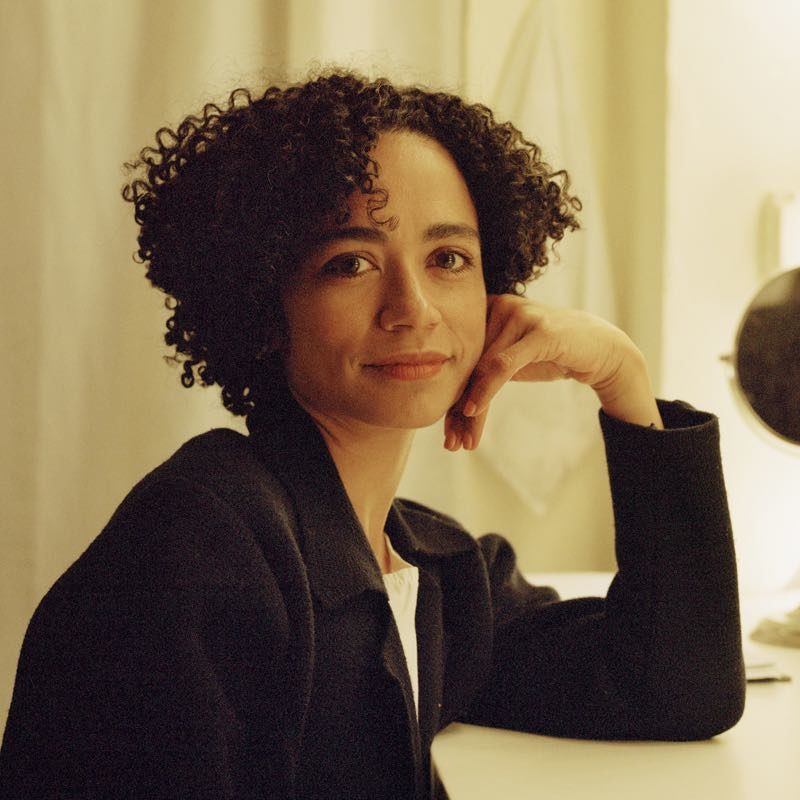An Interview with Lauren Ridloff
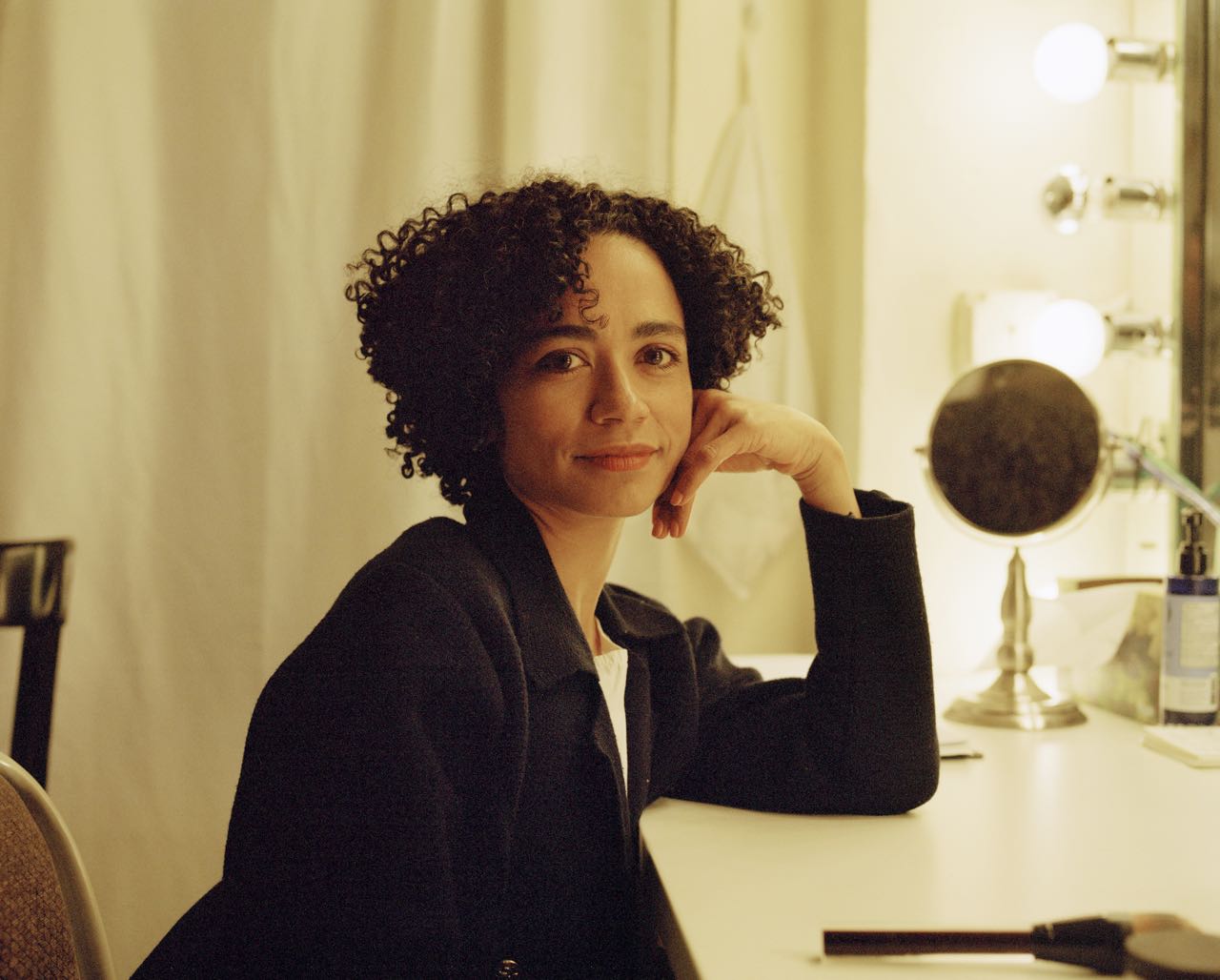
May 2nd, 2018
The title of the play Children of a Lesser God was inspired by Lord Tennyson’s narrative poem cycle Idylls of the King, which describes the death of the mythical King Arthur. A cynical, defeated Arthur wonders whether a “lesser god” made his imperfect world, filled with fallible human beings, or if we are simply too “dense and dim” to see the true magnificence of the world as it is. In Children of a Lesser God, Sarah, the play’s female lead, is seldom recognized for who she is, nor is she properly appreciated for her talents and her agency. Sarah has vowed to herself to communicate through ASL as opposed to through spoken language. However, she is an employee and student at a school that continuously tries to get her to renounce her decision and learn to speak instead. When the eager, idealistic James becomes her speech therapist, the two develop a unique bond that leads to a complex and nuanced romantic relationship. I recently sat down with Lauren Ridloff, currently making her Broadway debut as Sarah, as well as with her interpreter, Candace Broecker-Penn, for a conversation on the ways in which Lauren relates to Sarah, how the play helps her empower her own children, the importance of people truly listening to one another, and more.
In other interviews, you’ve previously discussed how meaningful it was for you to see the movie of Children of a Lesser God as a child. What was it like to find out that you were going to be involved in this production, first as a tutor, and then ultimately in the Marlee Matlin role?
It was mind blowing because, first, Phyllis Frelich originated the role on Broadway. I don’t know if you know the story about that. Mark Medoff wrote Children of a Lesser God for her. He was inspired by Phyllis, and wanted to write a play for her. So, for me to then follow in those footsteps—Phyllis won the Tony, Marlee won the Oscar—it was amazing. There are so many deaf women within the community who have had an opportunity to do the role of Sarah. It’s an amazing thing. I’ve met a lot of these women who have said to me, “I played Sarah 35 years ago in our regional theatre or for my school.” The character of Sarah has made such a huge impact on deaf women. So now, for me, I never once thought I would be chosen to portray Sarah. First of all, I’m a person of color. I just never thought. I thought it was a given that Sarah was a white deaf woman. So, it was a big surprise to find out that Sarah is now a woman of color, and I’m so proud to present that new Sarah to the world out there.
It seems like you connect to Sarah on a very deep level. For one thing, you’re able to personally identify with Sarah in terms of a particularly impactful choice she’s made.
Absolutely. An interesting moment happened between me and the director [Kenny Leon]. We had a conversation about Sarah’s choice not to use her voice. The director said, “Well, was that a political choice, an act of rebellion?” I said to Kenny, “No, not to me.” I think Sarah decided not to use her voice more as an act of self-preservation because when I decided to stop using my voice at 13, that was not a political decision at all. I stopped using my voice because I was at that awkward age of 13. I had glasses, and I loved reading books, and I was mainstreamed into school with a lot of hearing children. I felt there was enough oddness about me. So, I decided not to use my voice anymore. I didn’t want to face any bullying. I didn’t want to face strange gazes from other people. I didn’t want to be judged based on my voice because that was not a reflection of my intelligence or my personality or who I was. None of that.
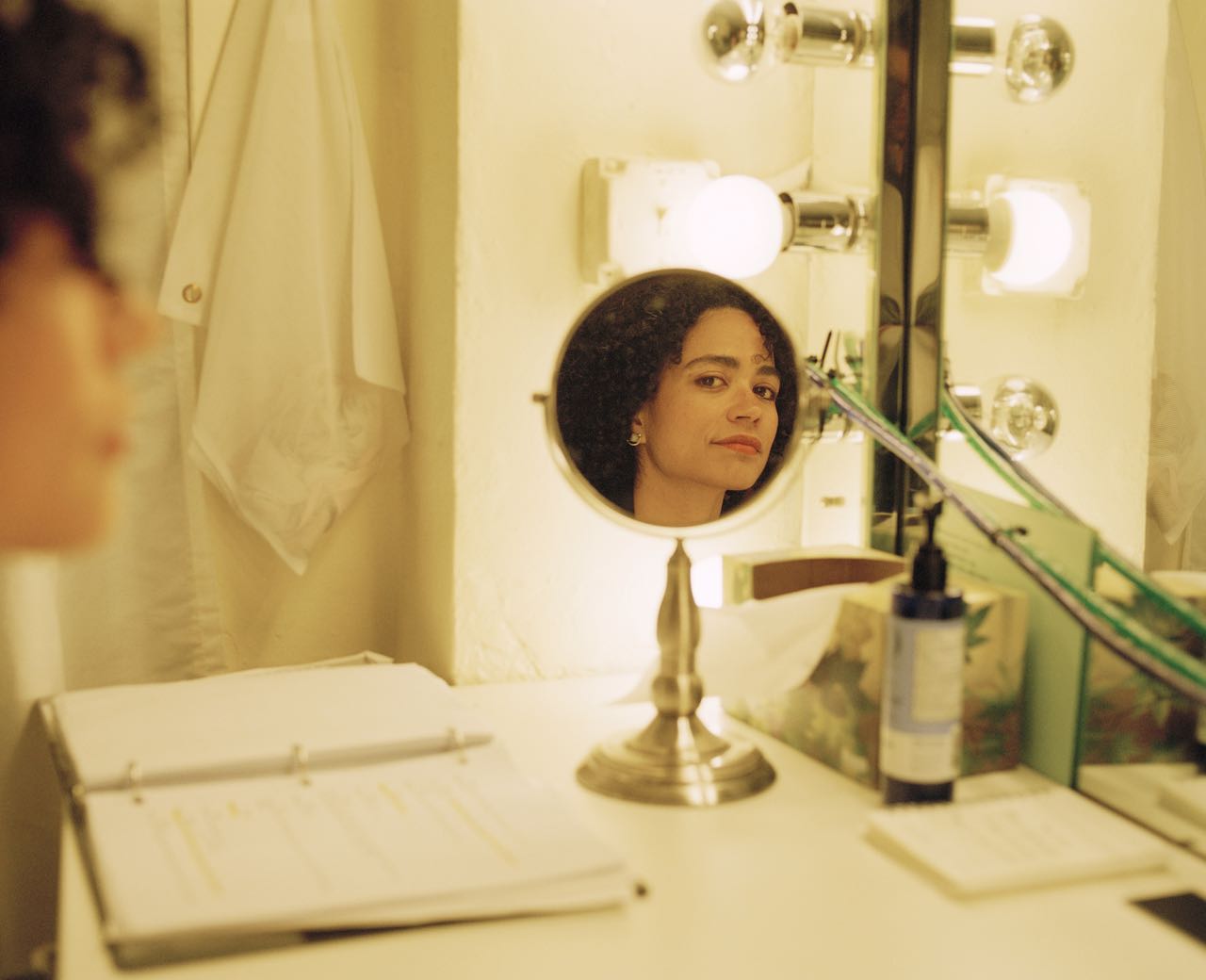
Has revisiting that choice every night as Sarah made you reexamine any aspects of your own life?
Yes, it definitely has. Ironically, I stopped using my voice as a way not to draw any more attention to myself. Now, 26 years later, I’m using my voice to draw attention, to say to everyone in the audience, “Look at me. Hear me. Listen to me.” So, personally, I’m still very comfortable with my decision not to use my voice in my everyday life and everyday conversations. Again, that’s not who I am. I don’t want my voice to be defining me. But I do feel like this production has given me the opportunity to reclaim my voice and use it when I would like to. When I laugh, when I’m performing, I use my voice because I want to. That is really freeing.
It occurs to me that we often use the phrase “own your voice” as a metaphor for empowerment. It sounds like that’s what you’re experiencing.
Yes. Exactly. It’s like a new physical aspect of using my voice. I had years of speech therapy growing up, and I never realized that many of us use our voices from our diaphragms to support it. That’s been a new discovery for me, so I’m using a muscle that I didn’t even realize I had. We’ve been working with the most wonderful vocal coach named Kate [Wilson], and she has helped me find my body. I’m so happy to share that with my boys now. They’re four and six, and they are both deaf. I hope that this play helps me help empower them in this way.
What it been like for you as a mom who is working on Broadway? Do your boys come to the theatre? Have they seen the show?
I feel that I have this Broadway family, and they are so accepting and embracing and welcoming of my family. When we did our out-of-town run in the Berkshires [at Berkshire Theatre Group], the cast and the crew there had plenty of opportunities to hang out with my children, and it was really terrific. My children haven’t seen the show because I feel like the themes are very mature and I think they would become restless. So, I hope that one day, they’ll be able to watch the show in its entirety. Maybe that would be near the end of the run. But they have come to rehearsal. Recently, they just came here to visit the set and see a bit of the rehearsal. So, it’s been really fun. I couldn’t possibly do any of this if it weren’t for my husband. My husband has been holding down the fort for all of us. He’s been cooking, he’s been doing the laundry, he brings the boys to school. He’s been doing everything. So I honor him and adore him. I feel like my sons get to see their parents handling all these different roles in life.
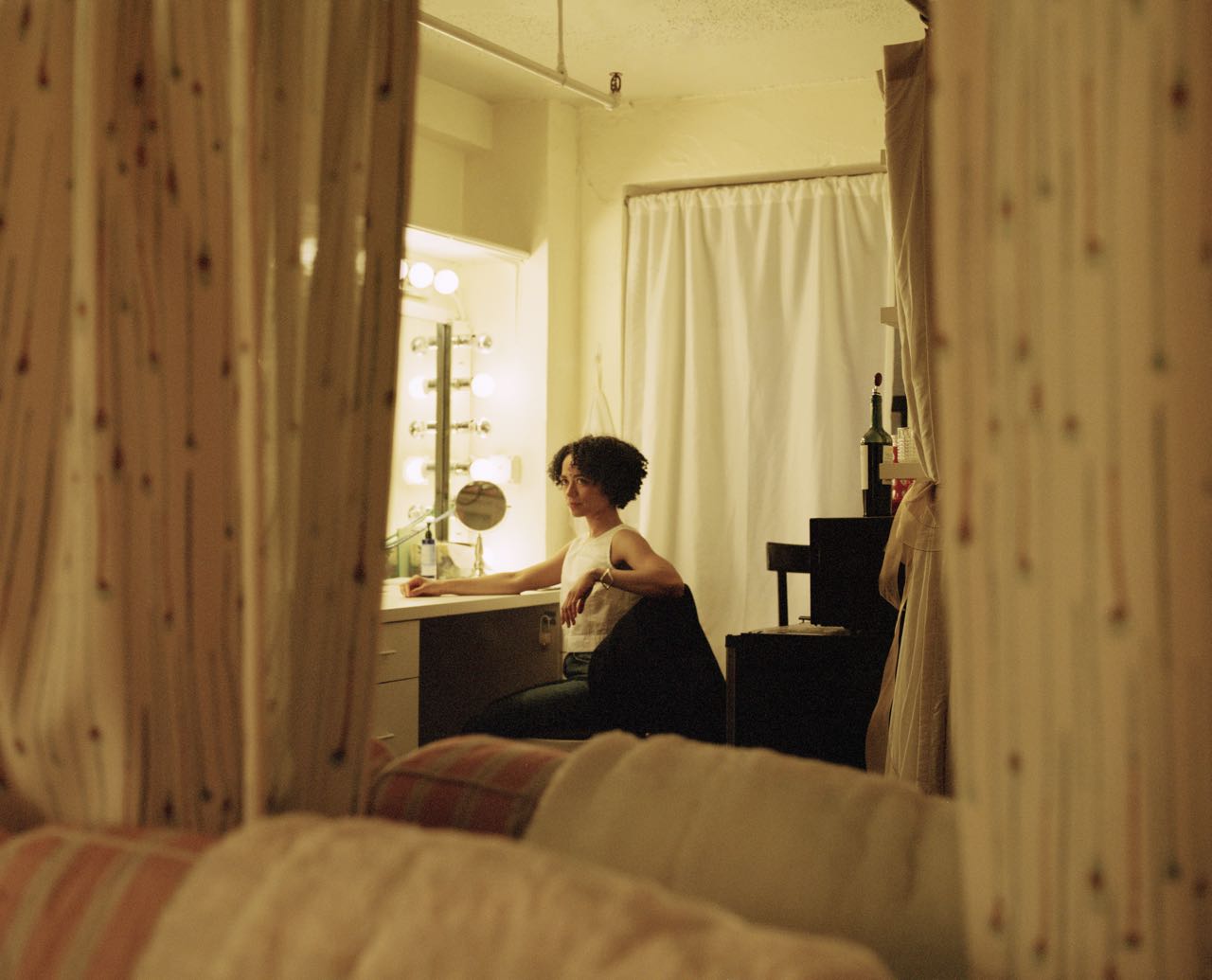
Arguably, the sexual politics and gender politics reflect the [late 1970s] era in which the show was written, and in which the show is set. Has your interpretation of the dynamic between James and Sarah been informed at all by what’s happening right now with movements like #MeToo and #TimesUp?
I absolutely feel that this production is happening at the right time. It’s almost as if it’s one of the many responses to the #MeToo movement, because now people sit in the audience and, when they see some of the things that happen onstage in this play, people automatically think, “That is not okay. That is not right.” It’s a given today. We don’t accept that, period. I think it’s really good to see that kind of progress and recognize it. James, Sarah’s love interest, is a teacher at the school, and I work at the school and I’m a student there, so we’ve talked about the sticky balance. I’m a student, but, I’m 26 years old. I’m taking some classes. So, age is not the issue in this story. It’s not a teacher-student relationship. It’s just about a man using his position. It’s about a man who, perhaps, is using his position to win the heart of this woman. I look at Sarah as a very independent, strong woman who is making her own choices in her life.
One line of Sarah’s that really stood out to me was, “I don’t do things that I can’t do well.” In the context of her particular situation, it’s very understandable; it explains a lot about where she’s coming from. But many young women do fall into that mindset, that perfectionist mentality, to their detriment, and it can keep them from living their fullest lives.
It’s interesting you bring that up. Sarah is human, after all. She’s a beautiful, flawed person. She gets jealous. She is a perfectionist. I think Sarah, over time, realizes that she needs to take some risks. One of the lines at the very end is when she says to James, “We need to meet in another place, not in silence or in sound, but somewhere else, and I don’t know where that is right now. I have to go it alone.” So, Sarah’s realizing right now that there are risks that she needs to take, and she might not do them well. She just has to try. So, I think that’s a growth we see in Sarah that’s meaningful. I hope that reaches out to our young female audience today.
A theatre critic recently noted that one of the real challenges of the story is that James is the hero, but Sarah is right.
I agree. Oh, yeah. I agree. It’s funny because many people out there have said that a main comment of the show is no one’s really listening to each other. But I really do think Sarah, at one point, wakes up. She is woke. She gets it. No one is listening, and that’s it.
In addition to the importance of listening to one another, the play explores the themes of connection and communication, specifically in terms of how language shapes the way in which we see the world. It can open up or constrict the ways in which we connect to each other.
Yes. You’re right about how language shapes how we see things. Language is a large part of culture, and of what people find funny, too. This isn’t quite a direct relationship to what you just said, but one thing that Joshua Jackson [who plays James] and I like to talk about is in reference to the audience, because we both get different audiences every night. Some are deaf, some are hearing. The audience is made up of completely different people, and people laugh at different jokes and different moments. Joshua will say, “Oh, there’re deaf people in the audience tonight because they’re laughing at the deaf jokes.” So, language really does shape who we are.
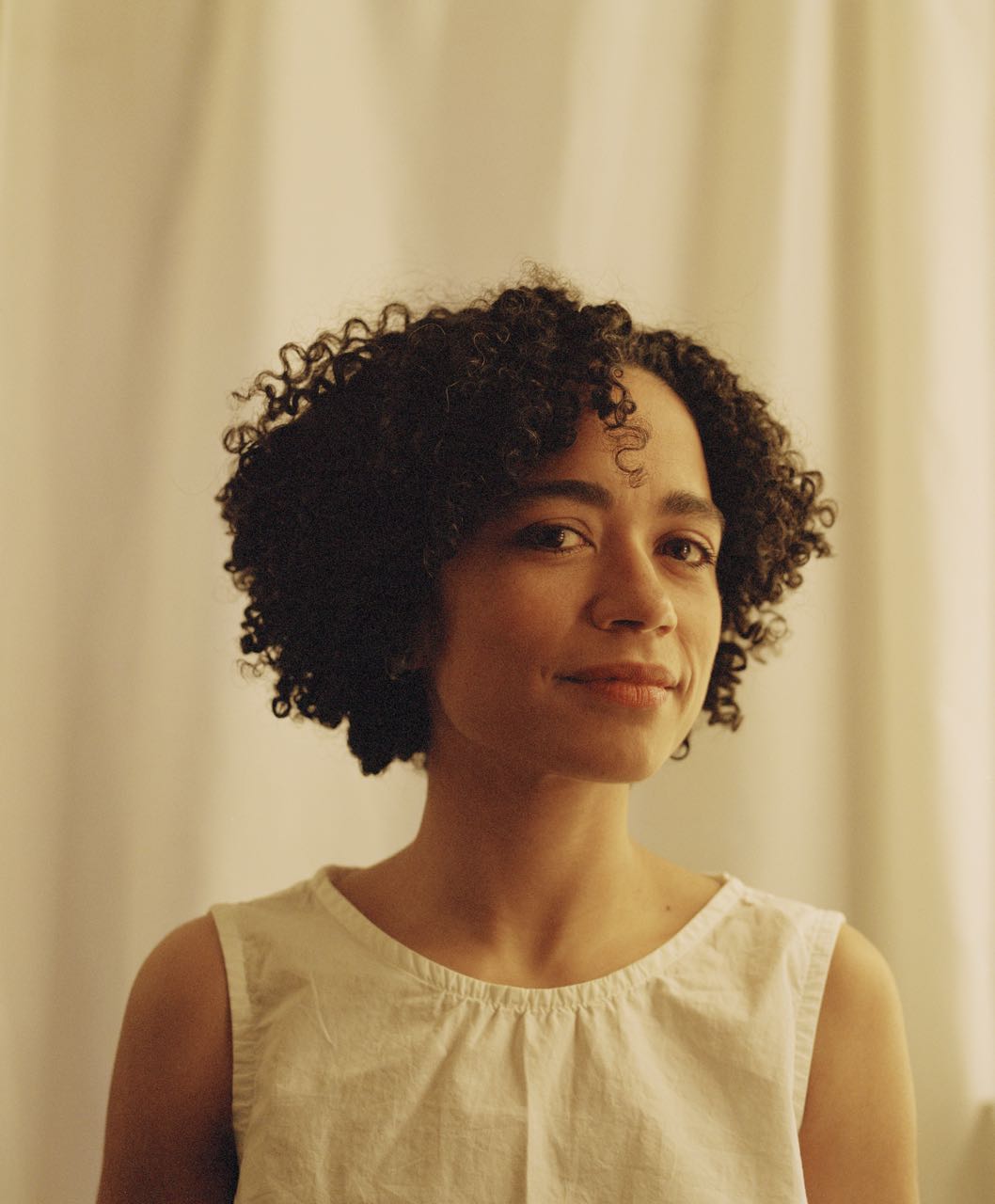
You were an educator and a language tutor for many years. Now you’re a parent of schoolchildren, and you’re playing a student onstage eight times a week. Do you have any thoughts on what schools could might try to do to might help improve the educational experience for all students?
I worked as an educator. I taught kindergarten and first grade for almost ten years. One of my favorite things about teaching that age group of children was that we gave them a whole unit. Something might last a month, or two months, [allowing us time to] focus on learning to listen to each other. My students would sit in a semicircle and, because we had a diverse group of children who were signers and children who were not signers, we had to make sure that everyone had a fair chance to participate. So, we would really model. One student would tell their story, and then another student would tell theirs, and we would move along in a way that [enabled] one person to be the leader. We would have something they could wear, and they could choose the topic that they wanted to talk about. They could choose other classmates to speak with them. It was really an opportunity for them to practice learning to talk and listen. I would say I think that’s really important for education in general. We really need to keep doing that kind of practice from time to time, from kindergarten all the way through high school, in every single grade. I don’t know what they do right now, but I think it applies to every field—arts, deaf education, all the STEM classes. I think we need to practice the physicality and the touch part of actually doing, talking, and listening.

